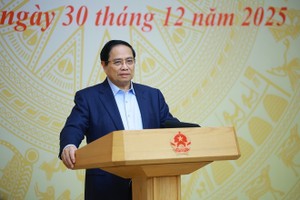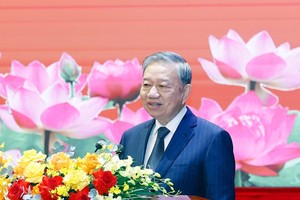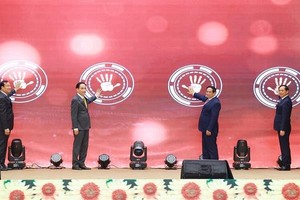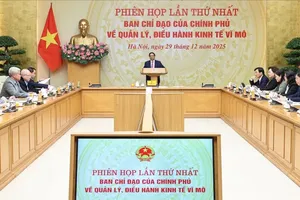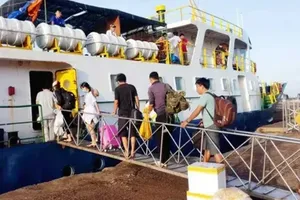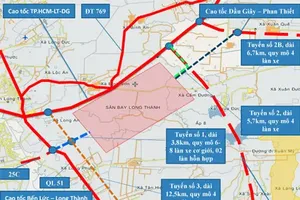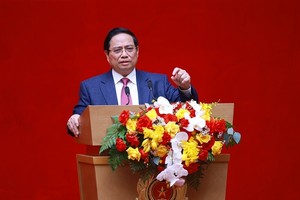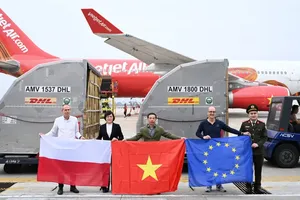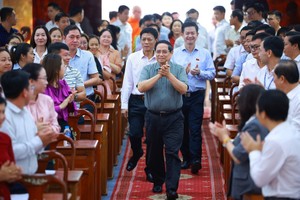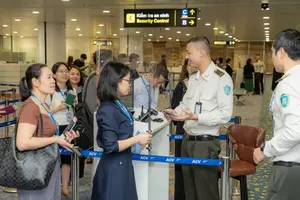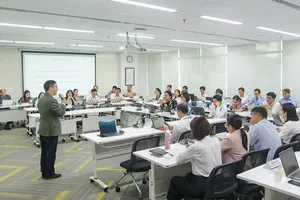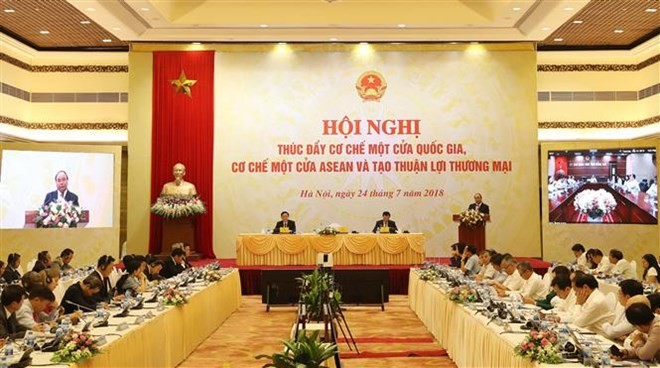
Addressing a national conference on promoting ASW, NSW, and trade facilitation in Hanoi on July 24, the PM stressed the need to continue building a better business environment for all economic sectors with an aim to enter the leading group of the ASEAN and meet the Organisation for Economic Co-operation and Development’s (OECD) standards.
The PM highlighted that the action plan and decree should include breakthrough, more effective and practical solutions, especially in management of import-export goods, thus dealing with problems and strengthening both the import-export activities as well as regional and international trade.
Underscoring the need to control and combat trade frauds and smuggling, the PM believes that it is necessary to design strict measures to deter organisations and individuals from violating regulations on food safety or committing trade frauds.
He hailed the efforts of the National Steering Committee for ASW, NSW and Trade Facilitation (Steering Committee 1899), as well as relevant ministries and sectors, especially the business community, in implementing tasks assigned by the PM and Government in the field.
He asked all ministries and sectors to work more closely together to improve the business environment, which would in turn enhance the national competitiveness and support sustainable growth.
The ratio of goods subjected to specialised examination should be reduced to under 15 percent, while the list of goods and products subjected to specialised inspection as well as inspection procedures should be cut down by 50 percent, the PM requested.
At the same time, examination methods and criteria should be made transparent by issuing evaluation standards, he stated.
The PM also asked provinces and cities to cooperate closely with the Steering Committee 1899 and the Ministry of Finance as well as other relevant agencies to supervise the implementation of NSW and ASW mechanisms and trade facilitation in each locality.
According to Deputy PM Vuong Dinh Hue, who is head of the Steering Committee 1899, the average cost for customs clearance for a lot of goods has been cut by 19 USD. As of the end of 2017, the cost was cut by 205 million USD on 10.18 million custom declarations. The time for keeping goods has been shortened by 15 million hours for export and 33 million hours for import.
The Ministry of Finance reported that currently, 11 ministries and sectors have been connected to the NSW to process 53 administrative procedures on nearly 1.26 million sets of dossiers of 22,000 enterprises.
In particular, all customs procedures can be processed through the NSW, which draws 99.65 percent of enterprises.
Since January 1, 2018, Vietnam officially exchanged their certificate of origin (C/O) model with four other ASEAN countries, namely Singapore, Malaysia, Indonesia, and Thailand. Since June 10, total C/Os that Vietnam received from the four countries were 28,509. The country also sent 14,392 C/Os to those countries.
However, the ratio of administrative procedures processed through the NSW remains few at 53 procedures, making it unlikely to reach the target of 143 procedures by the end of the year.
Meanwhile, many businesses complained about some of the shortcomings in the implementation of NSW mechanisms. They said that many procedures are still complicated and the sharing of information among management agencies remains ineffective.
The PM highlighted that the action plan and decree should include breakthrough, more effective and practical solutions, especially in management of import-export goods, thus dealing with problems and strengthening both the import-export activities as well as regional and international trade.
Underscoring the need to control and combat trade frauds and smuggling, the PM believes that it is necessary to design strict measures to deter organisations and individuals from violating regulations on food safety or committing trade frauds.
He hailed the efforts of the National Steering Committee for ASW, NSW and Trade Facilitation (Steering Committee 1899), as well as relevant ministries and sectors, especially the business community, in implementing tasks assigned by the PM and Government in the field.
He asked all ministries and sectors to work more closely together to improve the business environment, which would in turn enhance the national competitiveness and support sustainable growth.
The ratio of goods subjected to specialised examination should be reduced to under 15 percent, while the list of goods and products subjected to specialised inspection as well as inspection procedures should be cut down by 50 percent, the PM requested.
At the same time, examination methods and criteria should be made transparent by issuing evaluation standards, he stated.
The PM also asked provinces and cities to cooperate closely with the Steering Committee 1899 and the Ministry of Finance as well as other relevant agencies to supervise the implementation of NSW and ASW mechanisms and trade facilitation in each locality.
According to Deputy PM Vuong Dinh Hue, who is head of the Steering Committee 1899, the average cost for customs clearance for a lot of goods has been cut by 19 USD. As of the end of 2017, the cost was cut by 205 million USD on 10.18 million custom declarations. The time for keeping goods has been shortened by 15 million hours for export and 33 million hours for import.
The Ministry of Finance reported that currently, 11 ministries and sectors have been connected to the NSW to process 53 administrative procedures on nearly 1.26 million sets of dossiers of 22,000 enterprises.
In particular, all customs procedures can be processed through the NSW, which draws 99.65 percent of enterprises.
Since January 1, 2018, Vietnam officially exchanged their certificate of origin (C/O) model with four other ASEAN countries, namely Singapore, Malaysia, Indonesia, and Thailand. Since June 10, total C/Os that Vietnam received from the four countries were 28,509. The country also sent 14,392 C/Os to those countries.
However, the ratio of administrative procedures processed through the NSW remains few at 53 procedures, making it unlikely to reach the target of 143 procedures by the end of the year.
Meanwhile, many businesses complained about some of the shortcomings in the implementation of NSW mechanisms. They said that many procedures are still complicated and the sharing of information among management agencies remains ineffective.


